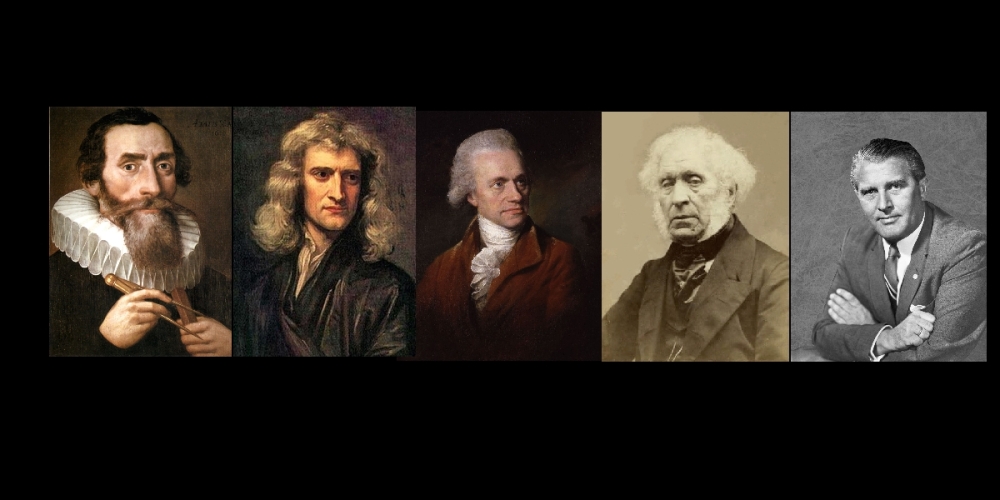“Tony Breeden, we know about your lone wolf views on aliens. Go and troll somewhere else.”
This comment was fired at me by an admin on the Alien Intrusion movie’s Facebook page and rather quickly deleted thereafter (Yes, I have a screenshot), but I wanted to comment on that whole “lone wolf” notion.
I believe they’re referring to the fact that the major modern creationist organizations, including Answers in Genesis, the Institute for Creation Research and Creation Ministries International all currently hold official positions that are hostile to the idea of extraterrestrial life. And I’m on record (and vocally so) as saying that it’s unwise to be dogmatic on a subject the Bible is explicitly silent upon.
But I’m hardly alone in my views. Statistically, I’m one of the majority; creationists who affirm the possibility of extraterrestrial life outnumber creationists who deny that possibility. Historically, I stand in the shadow of a long tradition of Christian theologians who have been discussing extraterrestrial life and its implications since at least the Middle Ages. If you had only the opinion of the top modern creationist organizations to go on, you’d never guess that the majority of these theologians discussed the possibility of God-created alien life favorably as they explored questions of His omnipotence, wisdom and glory.
It is clear that these modern creationist ministries have neglected to research the history of Christian thought on this subject before coming to their conclusions. In fact, they even forgot to even look up what creation scientists of old had to say on the matter!
This matter must be remedied!
To this end, here are a few creation scientists who were favorable to the idea that extraterrestrial life might exist.

Johannes Kepler (1571 – 1630)
“The conclusion is quite clear. Our moon exists for us on Earth, not
for the other globes. Those four little moons exist for Jupiter, not for us. Each planet
in turn, together with its occupants, is served by its own satellites. From this line of
reasoning we deduce with the highest degree of probability that Jupiter is inhabited.”
- Johannes Kepler, Conversation with Galileo’s Sidereal Messenger, Translated, with an introduction and notes, by Edward Rosen. New York: Johnson Reprint Corporation (1965), p. 42.
Johannes Kepler also believed that the moon might be inhabited. His novel Somnium (published post-humously in 1634 by his son, Ludwig Kepler) is considered by some to be the very first work of science fiction and also the first work of sci-fi to include extraterrestrials.
Sir Isaac Newton (1642 – 1727)
In 1701, Sir Isaac Newton wrote:
“For if all places to which we have access are filled with living creatures, why should all these immense spaces of the heavens above the clouds be incapable of inhabitants?”
- Sir Isaac Newton. Quoted from Newton’s Philosophy of Nature: Selections from his Writings. Edited by H.S. Thayer. New York: Hofner (1953), p. 67.
Newton also believed that exoplanets might exist as the future abodes (i.e., the “many mansions”) of the saints.
Sir Frederick William Herschel (1738 – 1822)
“…since stars appear to be suns, and suns, according to the common opinion, are bodies that serve to enlighten, warm, and sustain a system of planets, we may have an idea of numberless globes that serve for the habitation of living creatures.”
- Sir William Herschel, “On the Nature and Construction of the Sun and Fixed Stars.” Philosophical Transactions of the Royal Society of London, Vol. 85 (1795), pp. 46-72
Sir David Brewster (1781-1868)
“Since every fixed star, considered as the centre of a system, must have planets upon which to shine, we are furnished with a new argument from analogy, from the fact of our Solar system revolving round a sun with a similar system of planets, for as there is at least one inhabited planet in the one system, there must for the same reason be one inhabited planet in the other, and consequently, there must be more inhabited worlds than one—as many indeed as there are systems in the universe.”
- Sir David Brewster, More Worlds Than One: The Creed of the Philosopher and the Hope of the Christian. London: John Murray (1854), pp. 36-137
Dr. Wernher von Braun (1912 – 1977)
“Our sun is one of 100 billion stars in our galaxy. Our galaxy is one of billions of galaxies populating the universe. It would be the height of presumption to think that we are the only living things in that enormous immensity.”
- Text of the Address by von Braun Before the Publishers’ Group Meeting Here, The New York Times (29 April 1960) L. 20, column 2.
This is by no means an exhaustive list of creation scientists who have affirmed the possibility of extraterrestrial life; however, it does go to show that the idea of extraterrestrial life is not the exclusive province of evolutionary thinking, as is often claimed by those opposed to this possibility.

Reblogged this on Defending Genesis and commented:
Did any of the major modern creationist ministries ever mention that some pretty famous creation scientists believed in the possibility of extraterrestrial life? Do you think they even know?
LikeLike
Timely and helpful quotes. Thanks
LikeLike
Glad to be of service
LikeLike